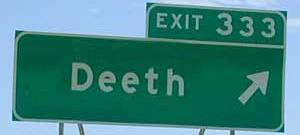Caucusing Is Easier (For Republicans)
While Democratic caucus-goers will spend the night of Jan. 3 struggling with dividing by 15 percent and negotiating with the undecideds, Republicans will face a much simpler process: show up and vote. But the vote totals that will reach the national media well ahead of the Democratic numbers will have no direct connection to the election of national convention delegates.
Iowa Republicans have the same multi-level convention process as the Democrats: Caucus-goers elect county convention delegates, who choose congressional district and state delegates. The district and state delegates choose the delegates for the national convention. But Iowa Republicans have none of the preference group and viability business that makes the Democratic caucuses so complex.
“The caucus result from the straw poll has no binding on the county convention or the state convention,” said Todd Versteegh, who's helping organize the Republican caucuses in Johnson County. He said Republican delegates are elected at large, after the presidential vote, by the whole caucus. “We don’t allocate in terms of percentages, you’re just a delegate.”
The Republicans, with their simpler process, don't start their caucuses till 7, a half hour after the Democrats. The Republican sign-in process is similar to the Democrats. There will be a list of registered Republicans in the precinct, and if you're not on the list you can register, re-register, or change party.
On one procedural matter, the Republicans are making a point on a hot election law issue: the Republicans will ask you for an ID, while the Democrats aren't. “There is ID on there, just to verify the person is who they sat they are,” said Versteegh. Under most circumstances, you don't have to show ID to vote in Iowa, but the caucuses are party meetings and not elections so the parties can make their own rules.
"Requiring an ID to vote is a very touchy issue," said Iowa Democratic Party political director Norm Sterzenbach, who's working on caucus arrangements and training. "We spend a great deal of time messaging that we trust people."
This year Republicans are, in select locations, setting up "Super-caucus" sites where several precincts meet at one building. The hope is to draw high-level surrogate speakers or even the candidates themselves, along with national media attention. One place the GOP hopes to have a super-caucus, Versteegh says, is Coralville.
The GOP's first item of business is election of a permanent chair and then “we go straight into it,” says Versteegh. “The first thing you've got to do in your presidential year is your presidential straw poll.”
The Republicans have an actual paper ballot. It doesn't list any candidates, says Versteegh, just write in whoever you want. There's a little speaking time where folks makes a short pitch for their candidate, then you vote. It's a secret ballot, with none of the standing in front of the neighbors and bargaining that the Democrats have. This means second choices matter less to Republicans than they do to Democrats.
County convention delegates are apportioned in the same fashion as the Democrats. It's based on the top of the ticket vote in the last two general elections (Bush 2004 and defeated governor candidate Jim Nussle in 2006). But the delegates get little attention because the Republicans give the media a hard vote count.
After voting is done, the Republicans count up their votes and call a touch-tone hot line in Des Moines to report the vote count results. "Ronald Reagan 76 votes, Abe Lincoln 44 votes, Eisenhower 27 votes, and Nixon 1." Unlike the Democrats, where a precinct's impact on the caucus result is frozen based on a delegate count, higher caucus turnout in a Republican precinct means more influence on the outcome. "A vote is a vote," said Versteegh.
Voting should be done in plenty of time for people to catch the 8:00 TV programs, or the second quarter of the football game. About this time, Democrats are still dealing with realignment.
Once the votes -- remember, "straw poll" votes, they're called -- are counted, the delegates are elected by all the caucus goers who choose to stay. Then the caucus moves on to election of party officers and debate of the platform, just as the Democrats do.
Who choose to stay or go after the straw poll vote can have a big impact on the delegates. Take the dead presidents example above: Reagan 76 votes, Lincoln 44 votes, Eisenhower 27 votes, and Nixon 1. Could the Reagan supporters outvote the Lincoln, Eisenhower, and Nixon folks and elect all Reagan delegates with just over half the support? Or did the Reagan folks go home, while the Lincoln people stayed to elect the delegates? “It’s not divvied up by candidate,” said Versteegh.
By the time any non-Iowan figures that out, the candidates are safely in New Hampshire.

No comments:
Post a Comment